Cleaning & Prevention
Preventive dental care is vital to maintaining good oral and overall health. With professional dental cleanings and preventive oral care measures, you can keep your teeth in optimal condition.
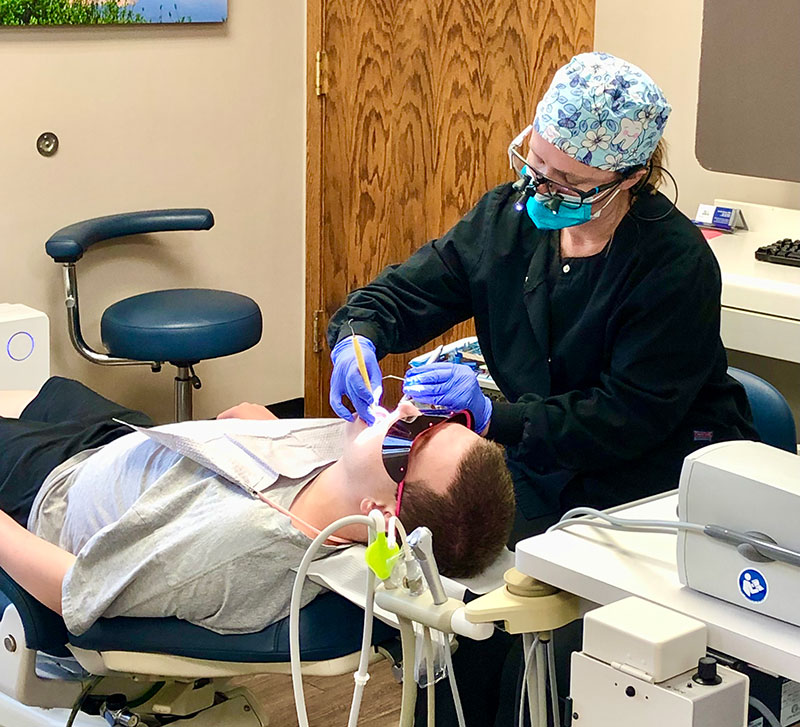
Cleaning & Prevention
Your mouth is the doorway to your body and its total health. That’s why healthy teeth and gums are an essential part of your overall health and well being. Recent studies show that gum disease has been linked to:
- Heart disease and stroke
- Pneumonia and other respiratory diseases
- Diabetes
- Premature, low birth weight babies
Our Emphasis Is On Preventive Dentistry.
Regular dental visits, including cleanings and assessments by our hygienist, are essential in the prevention of gum and periodontal disease; as well as maintaining overall wellness.
Gum disease begins with the formation of soft (plaque) and hard calculus (tartar) bacterial deposits on the surface of the teeth. Without proper oral care, this bacteria can cause inflammation of the gums. This is known as Gingivitis. The bacteria may then penetrate the gum line and eventually spread into the underlying bone, resulting in Periodontitis.
It is estimated 75% of the population has gingivitis. Blood on the toothbrush or dental floss is one of the earliest and most common signs of gingivitis. When detected early gingivitis is reversible and preventable with proper oral care, including brushing and flossing. However, without proper care gingivitis may progress to periodontitis.
Periodontitis can progress slowly and is often not painful. You may not even be aware of it until it has progressed to the advanced stage and you are in danger of losing teeth. Your dentist and dental hygienist can best detect the early stages of gum disease when it is the easiest to treat.
We will personalize a program based on your needs. Regular checkups are also important in the early detection of other dental problems, including dental decay, oral cancers, TMJ and muscle-related conditions.
Before & After
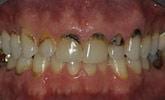
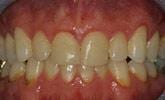
VIDEO
Everyday Dental Hygiene
Everyday dental hygiene is an essential component of preventative dentistry. Flossing and brushing twice daily is crucial to guarding against tooth decay and gum disease. Without these habits, plaque and tartar quickly begin to build. Brushing and flossing does not catch everything, which is why dentists suggest checkups (that include full dental cleaning) every six months. Since oral health varies significantly from one person to the next, the biannual suggestion should be considered a general guide only.
Diet And Oral Health
Diet is extremely important for maintaining proper oral health and is often overlooked as a form of preventative dentistry. If you consume sugary food and drinks regularly, a more frequent brushing and flossing schedule is advised.
Fluoride Treatment
A mineral that plays an important role in strengthening teeth and preventing decay, fluoride has been proven to have a beneficial effect on preventative oral health, which is why dentists and hygienists often provide treatments during dental visits. Dentists are also likely to recommend toothpastes and mouthwashes that contain fluoride.
Complete Oral Exams
Regular exams are important for more than just checking on the health of your teeth. A complete exam also includes an oral cancer screening, for added peace of mind. Naturally, the more regular the exam (like every six months instead of every year) the better your dentist will be able to monitor fluctuations and changes in your overall dental health. This is very important for detecting early warning signs of maladies like gum disease or gingivitis
How Often Should I See My Dentist?
This question is asked so often! We like to see our patients every 6 months to ensure optimal dental care. This is especially important for children as their teeth can change so often.
The Benefits Of X-rays
In addition to manual examinations, dental x-rays are vital to complete preventative dentistry. X-rays can detect cavities, some tumors, bone infections, and other diseases that are difficult or impossible to spot with the naked eye. Today, some dentists are also offering digital x-rays, which reduce the exposure to radiation in an environmentally friendly way that also has the advantage of producing instant images.
Mouth Guards And Other Devices
Dentists are also able to provide you with mouth guards and other devices like custom-designed splints that help to prevent problems associated with uneven bites or teeth grinding. Treating these symptoms early has been shown to reduce extreme wear that leads to tooth loss and gum recession. They can also help to treat or alleviate facial muscle pain symptoms related to temporomandibular joint disorders.
Does my oral health affect the rest of my body?
According to the Mayo Clinic there is a connection between your oral health and your overall health. Oral Health: A Window to Your Overall Health
Your mouth teems with mostly harmless bacteria, and through your body’s natural defenses and good daily oral hygiene habits of brushing and flossing, all bacteria is kept under control.
Without proper oral hygiene practices, bacteria left unchecked can lead to oral infections of tooth decay, gun disease, and inflammation that can lower the body’s resistance to overall infection.
What Conditions can be linked to Oral Health?
- Endocarditis. This infection of the inner lining of your heart chambers or valves (endocardium) typically occurs when bacteria or other germs from another part of your body, such as your mouth, spread through your bloodstream and attach to certain areas in your heart.
- Cardiovascular disease. Although the connection is not fully understood, some research suggests that heart disease, clogged arteries and stroke might be linked to the inflammation and infections that oral bacteria can cause.
- Pregnancy and birth complications. Periodontitis has been linked to premature birth and low birth weight.
- Pneumonia. Certain bacteria in your mouth can be pulled into your lungs, causing pneumonia and other respiratory diseases.
What conditions might affect my oral health?
- Diabetes. By reducing the body’s resistance to infection, diabetes puts your gums at risk. Gum disease appears to be more frequent and severe among people who have diabetes.
Research shows that people who have gum disease have a harder time controlling their blood sugar levels. Regular periodontal care can improve diabetes control.
- HIV/AIDS. Oral problems, such as painful mucosal lesions, are common in people who have HIV/AIDS.
- Osteoporosis. This bone-weakening disease is linked with periodontal bone loss and tooth loss. Certain drugs used to treat osteoporosis carry a small risk of damage to the bones of the jaw.
- Alzheimer’s disease. Worsening oral health is seen as Alzheimer’s disease progresses.
Other conditions that might be linked to oral health include eating disorders, rheumatoid arthritis, certain cancers and an immune system disorder that causes dry mouth (Sjogren’s syndrome).
Tell your dentist about the medications you take and about changes in your overall health, especially if you’ve recently been ill or you have a chronic condition, such as diabetes.
How can I protect my oral health?
To protect your oral health, practice good oral hygiene daily.
- Brush your teeth at least twice a day for two minutes each time. Use a soft-bristled brush and fluoride toothpaste.
- Floss daily.
- Use mouthwash to remove food particles left after brushing and flossing.
- Eat a healthy diet and limit sugary food and drinks.
- Replace your toothbrush every three to four months, or sooner if bristles are splayed or worn.
- Schedule regular dental checkups and cleanings.
- Avoid tobacco use.
Other Oral Health Procedures
Preventative dentistry can also include endodontic treatment like root canal procedures, which can reduce or eradicate future problems created by inflamed or infected tissue around a tooth. In this case, prevention focuses on saving teeth while eliminating pain.
Improve your oral health with Ascent Family Dentistry
Dental Solutions For You
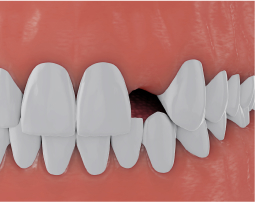
Are you missing a tooh?
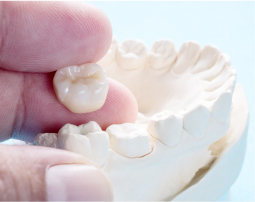
I have a broken tooth. Help!

I want to feel confident about my smile.
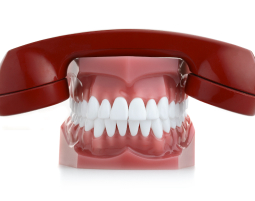
I’m in pain. What do I do?
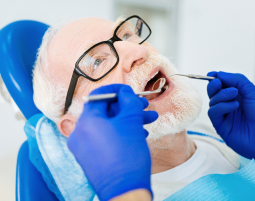
My snoring is keeping everyone awake!

I have questions about dentures. Can you help?
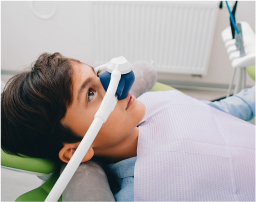
But I’m afraid to visit a dentist!

My gums are bleeding. Something’s not right!


